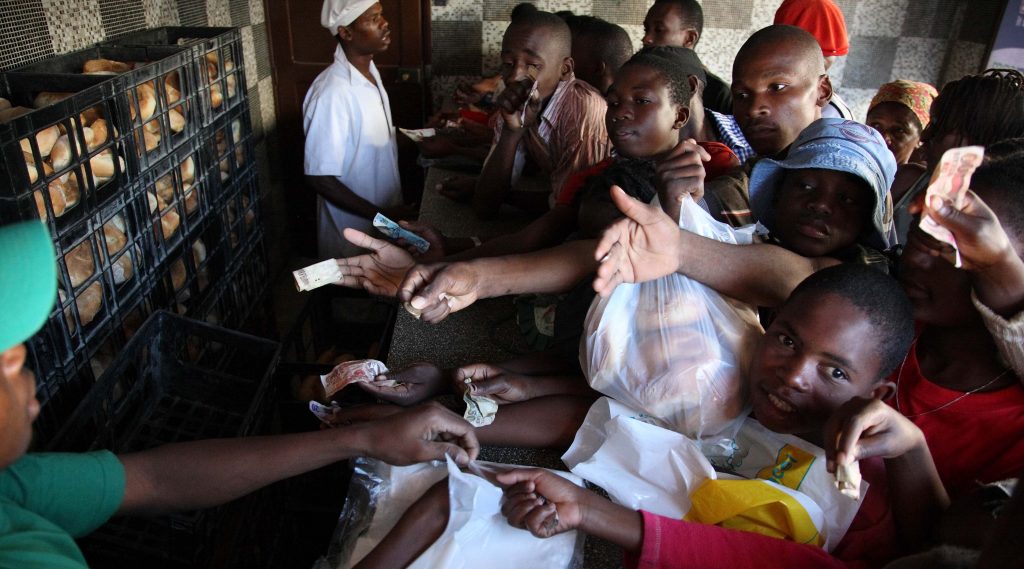Growing crops for biofuels would lead to less food being produced, forcing more people into hunger, finds a new analysis commissioned by Friends of the Earth Europe and released today. [1] The revelation comes as the environment committee of the European Parliament faces a crucial vote on biofuels on Thursday (July 11).
The use of certain crops that have been predicted to have modest carbon savings – such as bio-ethanol from wheat and maize – would directly remove quantities of food from the food chain and force people to eat less to reduce carbon, reveals the new paper by leading scientist Timothy Searchinger. [2]
The paper says: “Decision makers who vote in favour of increasing ethanol biofuels … must count on people to eat less food and less nutritious food to achieve carbon savings.”
Conversely, to avoid impacts on food production, land would have to be deforested or ploughed up, leading to a dramatic increase in greenhouse gas emissions – a lose-lose situation.
Examining available studies, including by the European Commission, the paper shows that of the maize and wheat diverted for producing fuel, 25% of the calories are not replaced and are removed from the food chain. The world’s poorest people are likely to be the ones to suffer the consequence.
The findings come ahead of a vote by MEPs in the European Parliament’s environment committee on Thursday July 11 on whether to limit biofuels ‘from food’. A cap on food used in biofuels of 5% of the EU’s 10% target for renewable energy in transport has been proposed. [3] However, many MEPs, notably from the European People’s Party (EPP), are pushing for biofuels to expand beyond this.
Robbie Blake, biofuels campaigner for Friends of the Earth Europe said: “This analysis should be a game changer in the biofuels debate. Either we choose crops that reduce climate damaging emissions but mandate that some of the world’s poorest people eat less food, or we stop more people going hungry and massively increase greenhouse gases – it’s a lose-lose situation. The only logical solution is to stop using crops for biofuels in the first place.”
Commenting on Thursday’s vote on biofuels, Laura Sullivan of ActionAid said: “It is simple: this Thursday MEPs can vote for or against hunger. Certain MEPs want to weaken the Commission’s proposal that seeks to limit the amount of food we can put in our cars. This would be a highly questionable move that would worsen what is at best an illogical policy, at worst an immoral and dangerous one.”
Commenting on the impacts of biofuels, Marc-Olivier Herman of Oxfam said: “Searchinger reminds us of a simple truth which the biofuels industry is trying to hide: Europe’s demand for biofuels is fuelling hunger in poor countries and even more people will go hungry if the EU’s biofuel policy does not get fixed. Members of the European Parliament and EU governments must act to prevent this from happening.”
At the end of June, 113 civil society organisations and coalitions, together representing millions of people, wrote an open letter to European Parliamentarians demanding to “fix a failed biofuel policy” and to “halt and reverse the radical expansion” of biofuels. [4]
As part of the ‘No Food for Fuel’ campaign, ActionAid, Friends of the Earth Europe, Greenpeace and Oxfam are calling on MEPs to:
- halt and reverse the growth of harmful biofuels,
- account for biofuels’ full climate cost including CO2 from felling forests, plundering peatlands, and expanding agriculture,
- put transport onto a genuinely green path by investing in real solutions.
– – –
NOTES:
[1] Understanding the Biofuel Trade-offs between Indirect land use change (ILUC), Hunger and Poverty’, July 2013 [2] http://www.princeton.edu/step/people/fellows-and-visitors/tim-searchinger/ [3] http://ec.europa.eu/clima/policies/transport/fuel/docs/com_2012_595_en.pdf [4] Europe must fix failed biofuel policy demand 100 organisations, June 19, 2013






